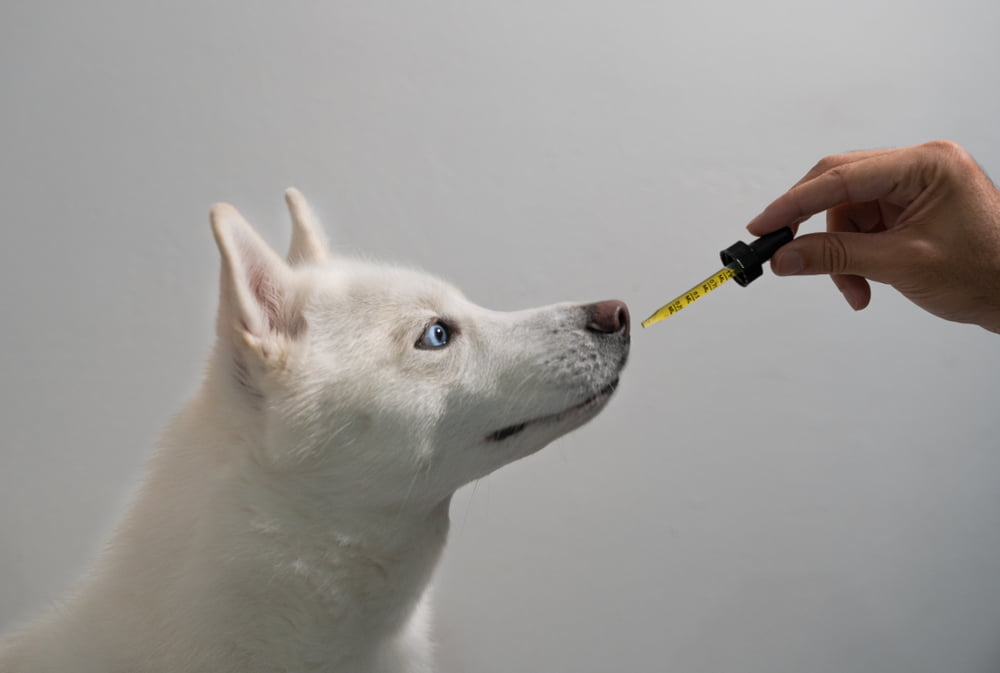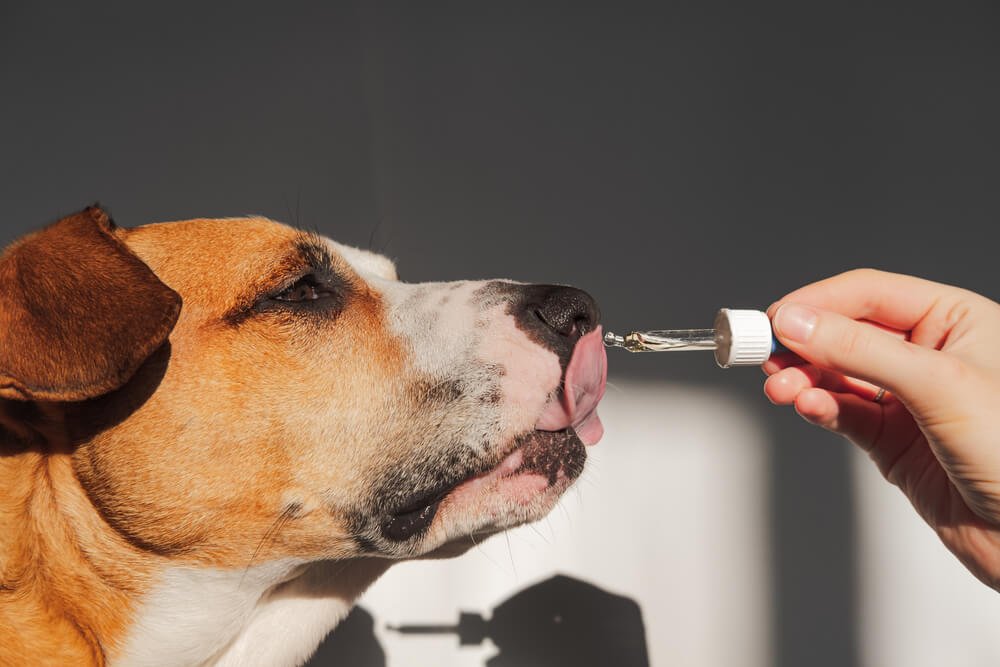
Picture yourself on a cold, winter night. You may be curled up with your dog in front of your fireplace. A bottle of cod liver oil may be next to you. You may have bought it after hearing that ancient Vikings used it to keep warm in the winter. Your eyes fall on your dog. The poor dear has been battling dry skin and an eye infection for ages! Your eyes light up at the possibility of helping your dog with cod liver oil. However, you may wonder, “Can I give cod liver oil to my dog? What happens if dogs eat cod liver oil? How much cod liver oil can a dog have?” Read on to find out!
What is cod liver oil?
Cod liver oil is oil that is obtained by pressing the liver of codfish. Humans have used it for centuries to help with issues like stiff joints and dry skin.
Like other fish oils, cod liver oil is rich in omega-3 and omega-6 fatty acids. These are considered essential fatty acids (EFAs), as dogs cannot produce them naturally but require them to remain healthy. The main omega-3 fatty acids in cod liver oil are eicosapentaenoic acid (EPA) and docosahexaenoic acid (DHA). Compared to other fish oils, cod liver oil has higher levels of Vitamin A and Vitamin D.
Can I give cod liver oil to my dog?
Yes – as long as you take the necessary precautions! Cod liver oil should be given in the right forms and doses. Cod liver oil, alongside some other oils such as flaxseed oil, is a common ingredient in commercial pet food and treats. It is also available in liquid and capsule forms. Do note that the quality of pet supplements varies greatly. Consult your vet on choosing the right supplement!
Furthermore, cod liver oil is not suitable for all dogs as some dogs are allergic to fish. Signs of an allergy include diarrhea and itchy dry skin. Some dogs are also on medications that cod liver oil could interfere with. If you are unsure whether your dog can have cod liver oil, consult your veterinarian!

Cod liver oil is not suitable for all dogs as some dogs are allergic to fish.
What happens if dogs eat cod liver oil?
If your veterinarian has okay-ed cod liver oil for your dog, you may wonder what benefits he can reap from consuming it. Cod liver oil can benefit dogs in the following ways:
Skin
As mentioned earlier, cod liver oil is rich in Vitamin A. Vitamin A helps to maintain healthy and supple skin in dogs. Inadequate vitamin A levels do not just cause dry skin – they can cause many kinds of skin diseases!
Furthermore, Omega-3 and omega-6 fatty acids help with skin issues (e.g. dry skin). Many dogs suffer from “Canine Atopic Dermatitis” (CAD). CAD refers to itchy and inflamed skin that is often hereditary. International veterinary dermatology guidelines state that omega fatty acids can help with the long-term management of CAD. However, fatty acids alone cannot treat CAD. Symptoms of CAD include rashes and dry skin. If you suspect that your dog has CAD, consult your vet!
Joints
Arthritis refers to inflamed and degrading joints. Research shows that in North America, ~20% of dogs over a year old have arthritis. Arthritis is more common in older dogs. Studies have found that EPA and DHA reduce inflammation in the joints of arthritic dogs. This improves symptoms of arthritis. Arthritic dogs on EPA and DHA demonstrated less pain and lameness and showed improvement in their ability to rise, walk, and play.

The components of cod liver oil can benefit conditions like inflamed joints and dry skin.
Bones
It’s not just the joints! As mentioned previously, cod liver oil is rich in Vitamins A and D. Both vitamins are essential for healthy bone development in dogs.
Eyes
Vitamin A is essential for the healthy development of the eyes in dogs. Furthermore, a study has found that pregnant dogs who were supplemented with DHA had puppies with better eye function than those who were not.
You may be wondering if cod liver oil can cure an eye infection in dogs. Unfortunately, an eye infection can only be diagnosed and treated by a vet. Symptoms of an eye infection include itchy eyes, red eyes, and/or increased discharge. Consult your vet if you believe that your dog has an eye infection!
Management of Kidney Disease
A couple of studies have found that EPA and DHA can reduce the progression of kidney disease in dogs. While more studies are required to investigate how cod liver oil can help kidney disease in dogs, it is still something to consider.

Cod liver oil is safe for eligible dogs – as long as appropriate doses are given.
How much cod liver oil can a dog have?
It depends on several factors (e.g. weight, diet history, medication history) so it is usually easiest if you feed your dog recipes that contain cod liver oil & meet AAFCO’s standards for a complete & balanced diet. Your vet can also help offer personalized advice as excess cod liver oil can cause tummy upsets, due to its high-fat content.
To conclude, cod liver oil is safe for eligible dogs – as long as appropriate doses are given. The components of cod liver oil can benefit conditions like inflamed joints and dry skin. Consult your vet before you introduce any form of cod liver oil to your dog to make sure they’re receiving the proper dose or find a dog food company that includes cod liver oil in their complete & balanced recipes!


